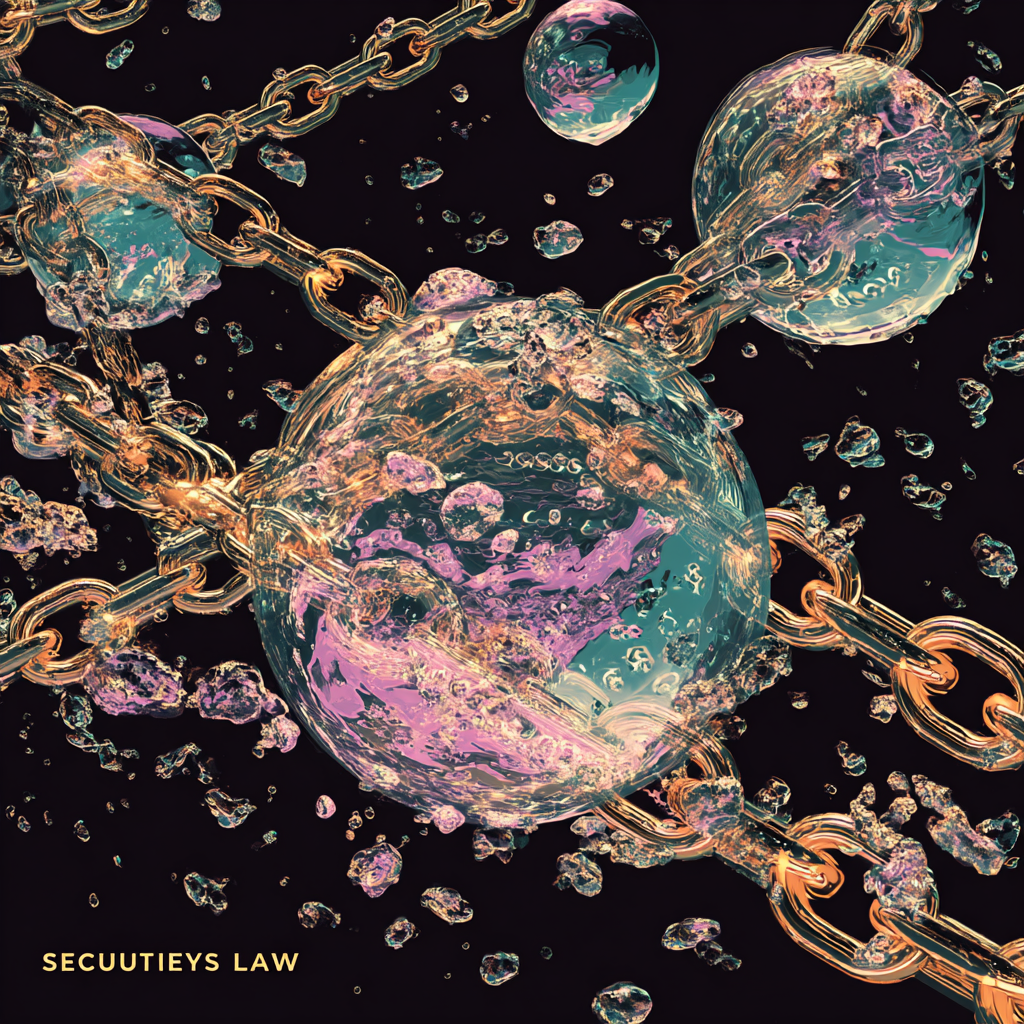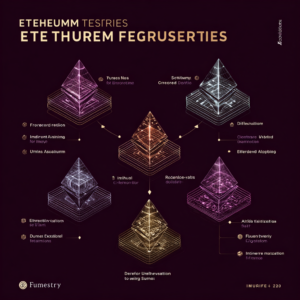
SEC Deems Liquid Staking Tokens as Non-Securities Due to Agency Function
Ah, the unveiling of the SEC's latest proclamation about liquid staking tokens – a narrative that’s akin to a phoenix rising from the ashes of regulatory ambiguity. On August 5, 2025, the U.S. Securities and Exchange Commission (SEC) threw the crypto world into quite a vibrant frenzy by declaring that certain liquid staking tokens and the activities tied to them are not under the blanket of securities law. This isn’t just some casual announcement; it’s like a breath of fresh air for liquid staking protocols, liberating them from years entangled in regulatory uncertainty. Those brave souls operating in this space, fastened tightly in the grip of existential dread regarding compliance, can now breathe a sigh of relief, their digital tokens savvily classified as something other than securities. Hats off to the SEC, who have, in essence, stated that liquid staking providers act more like agents than they do entrepreneurial overlords.
But first, what in the world is liquid staking, you may ask? Dive into the swirling waters of the crypto ocean, and you'll find that liquid staking is a clever mechanism designed for holders of proof-of-stake tokens. Here’s how it works in the simplest terms: You deposit your precious tokens with a third-party provider, and in return, you get a shiny set of “staking receipt tokens.” These nifty tokens validate your ownership while simultaneously allowing you to moonwalk your way through liquidity; yeah, that means trading or using them in other DeFi applications without the agonizing wait to unlock your original staked assets. Talk about convenience! Unlike traditional staking that leaves your assets locked tighter than a drum, liquid staking offers a charming alternative.
To set the stage, let’s have a little show-and-tell with some popular players in this arena: the illustrious stETH (staked Ethereum from Lido) and rETH (Rocket Pool's ETH) are among the titans of liquid staking. Fast forward to August 2025, and the total value locked (TVL) in liquid staking has soared to an awe-inspiring $67 billion, with Lido clinching almost half of that pie, around $31.7 billion. It’s no wonder that the buzz surrounding these developments has piqued the interest of investors and crypto enthusiasts alike.
Now, let’s unpack the SEC’s legal gymnastics that led them to proclaim these tokens as non-securities. They deftly applied the esteemed Howey test – a time-honored method to slice through the complexities of what counts as a security under federal law. This test looks for an investment of money in a common enterprise with the expectation of profits chiefly coming from the efforts of others. Interestingly enough, the SEC found that liquid staking tokens didn’t fit the traditional mold.
First, the liquid staking providers function as agents, performing administrative duties without flexing that entrepreneurial muscle associated with managing investments. They don’t decide when to stake your tokens or how much profit you can expect – those profits are derived from the staking rewards noticeable in the protocol itself, not from the providers’ whims. Second, the tokens you receive when you deposit reflect your ownership and accrued rewards, much like proof of stockpiled goods collected in a warehouse. No mysterious investment contracts here, folks!
As SEC Chairman Paul Atkins aptly stated, this guidance serves as a cornerstone of “Project Crypto,” an initiative aimed at modernizing our securities laws. It’s a refreshing take that signals a clear path ahead, establishing a measure of regulatory familiarity that is highly sought after in the tumultuous world of digital assets.
The ripple effect of this announcement will surely echo throughout the corners of the crypto industry. Regulatory clarity is like gold dust for liquid staking platforms such as Lido and Rocket Pool. It allows them to leap forward without the paralyzing fear of securities enforcement knocking at their doors. The collective sigh of relief from investors and developers is almost audible. Following the SEC’s statement, governance tokens tied to these protocols – like LDO for Lido and RPL for Rocket Pool – reacted with a sprightly bounce in their prices, a testament to the newly minted confidence in their legal status.
And what about institutional appetite? With legal risk almost evaporating, the doors are wide open for traditional financial players to engage with liquid staking, injecting fresh streams of capital into decentralized financial infrastructures. You can practically hear the cash registers ringing as the institutional interest swells with this newfound clarity.
As we zoom out and integrate this piece into the broader regulatory puzzle for cryptocurrency, we see patterns emerging that distinguish wrapped and staked tokens from securities, thanks to this significant SEC announcement. For too long, the crypto community has wrestled with ambiguity, struggling to classify certain tokens that seemed to teeter on the fine line of securities laws. No more! The SEC has laid the groundwork that echoes classic commerce practices – those trusty third-party agents managing goods without triggering a frenzy of investment contracts.
Finally, amidst all this organizational spectacle, the SEC has opened its arms to crypto market participants, inviting them to engage for additional guidance. Their willingness to maintain a dialogue with the crypto ecosystem is a nod to cooperation rather than confrontation, which is as refreshing as a summertime lemonade on a sweltering day.
Should you wish to dig deeper into this swirling maelstrom of regulations and digital assets, here are some resources to quench your thirst for knowledge:
- Brave New Coin – SEC Liquid Staking Guidance a Win For Crypto
- Unchained – SEC Clarifies Liquid Staking Tokens Are Not Securities
- CoinDesk – SEC: Liquid Staking Doesn't Run Afoul of Securities Laws
- SEC Staff Statement on Certain Liquid Staking Activities
Want to stay up to date with the latest news on neural networks and automation? Subscribe to our Telegram channel: @channel_neirotoken

